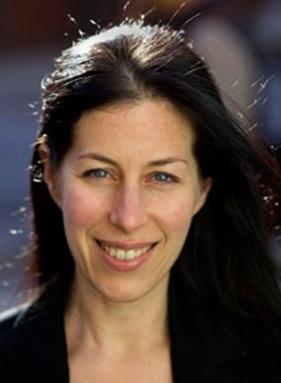“I’m happiest when I’m not comparing myself to others”
Journalist and writer Ariel Leve reveals
how experience and maturity have finally helped her love the life she leads.

I’m not sure when it started, but I can
remember the distinct sense of longing for something I didn’t have. There was a
feeling of melancholy that accompanied it, because the longing wasn’t for what
someone else had; but how they felt. I was certain that their life was better.
More exciting, more fulfilling and, more to the point, happier.
I was probably around 13 years old when the
comparison began.
Comparing myself physically was never the
issue. That’s not to say I didn’t wish I was taller or had a faster metabolism,
but I never internalised physical comparisons to other girls my age or took
them to heart. Sometimes I‘d wish I could have a different body type, but that
desire was fleeting. Maybe because I knew that, genetically, there were
limitations to what I could achieve and I let it go.
Comparing myself academically was far more
intrusive. I was always curious what grades my friends and classmates received,
especially someone I considered intellectually inferior. “What’d you get?” I’d
ask, trying to sound nonchalant. It was more than being nosy. I’d base how I
felt about myself and the work I’d done on the outcome of others.
But the most biting comparisons – the ones
that haunted me from adolescent onward – were the ones that cast a shadow of
worthlessness over my life.
The first time it happened, I was a
teenager and my best friend and I had “broken up”. We’d spent an entire summer
without talking, but I heard through the other friends that was doing well and
this upset me.
It wasn’t just the sadness that she had
moved on from our friendship and recovered, but what recently stung was the
news that she was having fun,going and doing well. How
come she was having fun and I wasn’t? Comparing lives had taken hold.
All the things I recall feeling – left
behind, rejected, destined to be an outsider – were the seeds of depression and
wanting something other than what I had. I had to work hard to convince myself
that just because she was offered a modelling contract; it didn’t mean I was
doomed to spend the rest of my life as David Copperfield –pressing my nose on
the glass of other people’s good fortune.
No matter how many times I was told “her
life has nothing to do with yours”, it didn’t resonate. It was a marker and
reflected my own inertia. Or my own failings. The struggle not to gauge my own
success by the achievements of others would continue into adulthood.
Because, from the outside, the lives of
others tend to seem better than they are. When you’re single, you think being
married or having a partner is the solution to feeling less alone. But plenty
of couples I know feel alone in their relationship. Or they wish they had time
to themselves. The grass is always greened.

In the past few years, comparing oneself to
others has become increasingly popular thanks to social media. Thank you,
Facebook. What others are doing, what they’re achieving, what they’re eating
and where they’re going on Saturday night – all of this is posted freely, and
somewhat assaulting if you’re not in a good frame of mind. The worst is logging
on my pyjamas at 4pm and seeing an idiot with the status update: “Just signed
my million dollar contract! So excited!!” How is that helpful?
The people I know who are happiest are
those who are content with their lot. That might sound unambitious, but its
roots are more along the lines of a Zen philosophy that recognises external
things are not the answer. I am happiest when I remember that what other people
are achieving has no bearing upon my own self-growth.
The older I get, the more I am able to
control the urge to evaluate myself based on the actions of others. Slowly,
over time, I let go of caring about how others perceived me, and this has a
liberating effect. I’m not sure I’ve changed entirely – the temptation is still
there when I read a piece I wish I’d written or hear about a job I wish I had,
but it doesn’t bring me down.
On occasion I’ve been asked, “If you could
have anyone’s life, whose life would you have?” The question itself is a reason
to take stock. Would I want to have someone else’s life? If so, why? What do
they have that I think I want?
Friedrich Nietzsche said, “What doesn’t
kill us makes us stronger.” I believe that what doesn’t make us unhappy, makes
us happy.